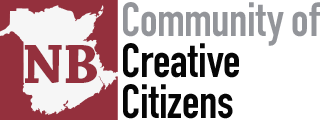The term “billion” is often thrown around casually by politicians, but it’s a number that’s hard to truly grasp. But a billion dollars is 1,000 million dollars. To put it into perspective,
- A billion seconds ago, Hugh John Flemming was our Premier.
- A billion minutes ago, the Han Dynasty rule in China.
- A billion hours ago, our ancestors were living in the Stone Age.
If you handed out $1 every second, it would take you 31.7 years to give away $1 billion. So, the next time you hear a politician use the word “billion” casually, think about whether you want the politicians spending your tax money so freely.
New Brunswickers are taxed on nearly every aspect of their lives, from income and property to daily purchases. The sheer number of taxes can be overwhelming. While taxes are essential for funding critical services like healthcare, education, and infrastructure, it’s important to ask: are we actually receiving the services these taxes are supposed to support?
As we approach the upcoming election, it’s a time when politicians often make numerous promises, often without fully considering the costs. Now is the time for citizens to ask, are we getting a return on our investment?
Our waiting lists for primary care physicians continue to grow, emergency rooms are overcrowded, and many hospital beds are occupied by patients who should be in nursing homes. The cost of living and the tax burden are making it harder for families to make ends meet with a shrinking middle class. Our public education system is struggling, with students scoring poorly on PISA exams and a troubling trend of teachers leaving the profession or not entering it at all. Meanwhile, the housing crisis worsens, further strained by increasing demand in the market. Additionally, rising crime rates are a growing concern, impacting the safety and well-being of our communities. These critical issues need urgent attention to ensure that our tax dollars are effectively addressing the needs of New Brunswickers.
CCC believes there may be a better way to address the needs of society. Government departments often work in silos, which can hinder a holistic approach to problem-solving. A more effective strategy would be to assess situations through a cause-and-effect lens. For instance, shouldn’t we be promoting healthier lifestyles to prevent disease rather than focusing solely on cures? Shouldn’t we prioritize home care and support for seniors, potentially even compensating loved ones to care for their elder parents, as it could be more compassionate and cost-effective than institutionalizing them? Additionally, it’s essential for the government to ensure that immigration policies are thoughtfully aligned with the province’s capacity to provide necessary services, focusing on bringing in immigrants whose skills and experience match the needs of the population.
And shouldn’t we empower local communities to come up with alternative, creative solutions. As a result of Local Government Reform, municipalities need more resources. This was anticipated; however not yet accomplished. For instance, why not convert vacant churches into community centers, daycares, or private schools?
Our education system needs a comprehensive overhaul. Instead of perpetuating the divisions created by early streaming in the French Immersion program, we should focus on meeting the core needs of all students, particularly in numeracy and literacy. Addressing issues like school absenteeism and ensuring the system aligns with the needs of our population is crucial. We must also reconsider how classroom disruptions are managed and explore personalized learning approaches that better respond to the needs of both students and parents.
Let’s get back to the basics, for they will be our beacon to drive necessary policy changes. Remember, significant changes come from outside in. Our politicians need to be listening more than talking. If we wish to pass on a vibrant and healthy economy, we should ensure that our elected politicians do not squander our inheritance. By doing so, we ensure not only a world class economy but also a thriving society to pass on to our children and grandchildren.
Daryl K. Branscombe
President
Community of Creative Citizens.
